#Thomas Henry Huxley
Photo


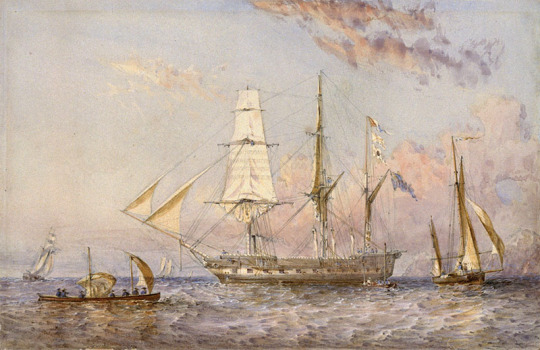
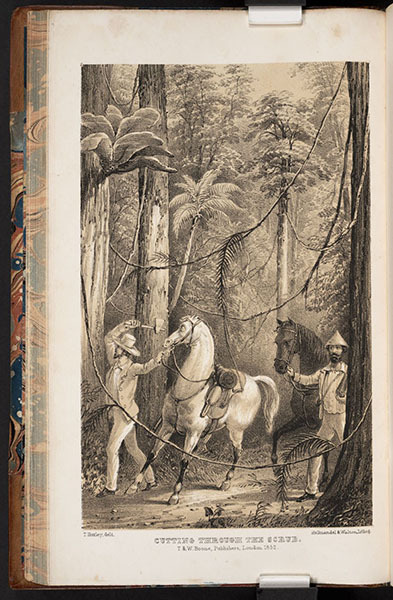




Thomas Henry Huxley – Scientist of the Day
Thomas Henry Huxley, an English comparative anatomist, was born May 4, 1824.
read more...
#Thomas Henry Huxley#invertebrate anatomy#voyages#histsci#histSTM#19th century#history of science#Ashworth#Scientist of the Day
23 notes
·
View notes
Text
And when you cannot prove that people are wrong, but only that they are absurd, the best course is to let them alone.
Thomas Henry Huxley
19 notes
·
View notes
Text
Protean Anagram Solutions
When I started making proteans last summer, I decided to name them all after a person, shuffling the letters in the name to make an anagram. I challenged my followers to figure out who each protean was named after.
So here's the solutions. Some of these people got when the monsters were originally posted. Others I got no replies on.

The temortanga, protean of fashion, was named after Stefani Germanotta, aka Lady Gaga
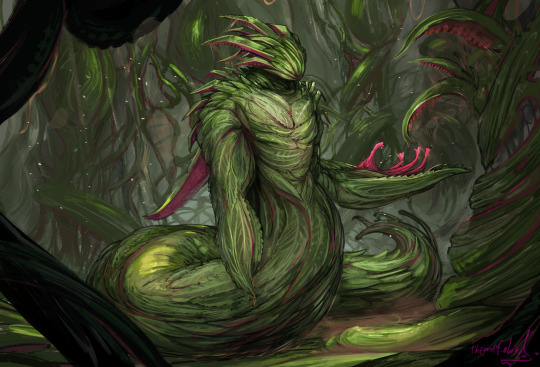
The alengos, protean of plant life and ecology, was named after Henry Gleason, an ecologist who argued against a universal "climax community" and that every ecosystem had a unique balance of plant life.

The ricretillo, protean of weather, air and water, was named after Evangelista Torricelli, who invented the barometer and was the first to explain how winds form from differences in air pressure and temperature.
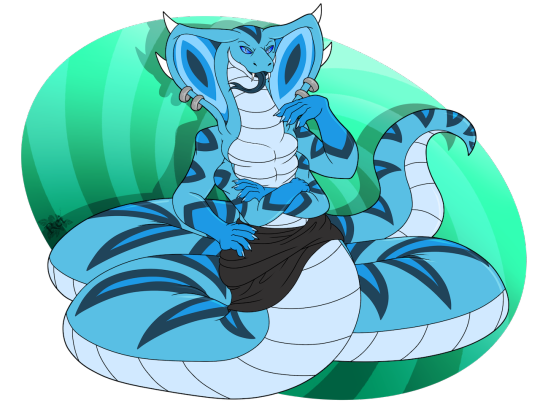
The cthilpuk, protean of emotions and moods, was named after Robert Plutchik, who created a psychological classification for emotions.
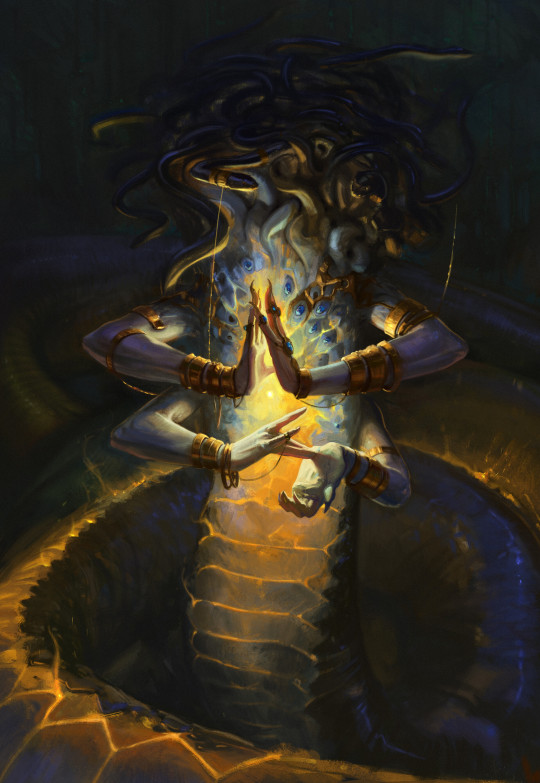
The yexhul, protean of evolution and animal life, was named after the Huxley clan, particularly Thomas Henry Huxley, first generation evolutionary biologist, and his grandsons Julian (a eugenicist) and Aldous (who parodied eugenics in Brave New World as a dig at his brother).

The heputwisa, protean of conspiracies and lies, was named after Adam Weishaupt, founder of the Bavarian Illuminati.
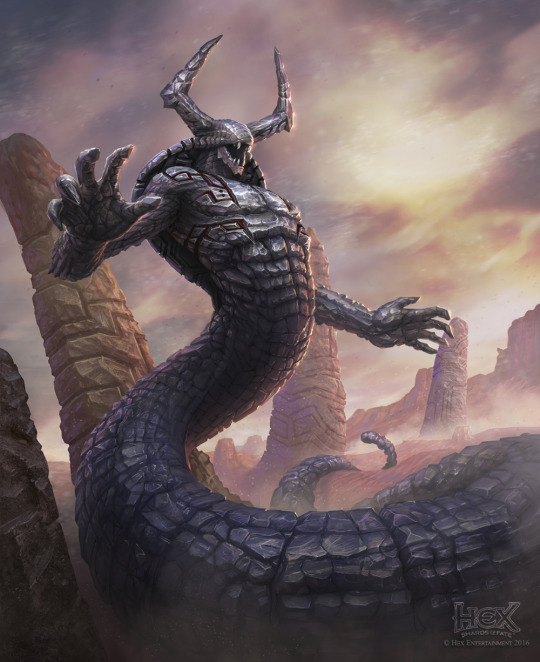
The renegwe, protean of plate tectonics, earth and fire was named after Alfred Wegener, proponent of continental drift
#pathfinder 1e#pathfinder rpg#creature development#protean#naming conventions#anagrams#thanks for playing#the temorganga yexhul and renegwe all had correct answers from the audience
73 notes
·
View notes
Text
ENCONTRE UM AUTOR:
Envie sugestões.
Leia uma citação no modo aleatório.
Autores Desconhecidos
Adélia Prado
Adrian Tchaikovsky
Affonso Romano de Sant’anna
Alain de Botton
Albert Einstein
Aldous Huxley
Alexander Pushkin
Amanda Gorman
Anaïs Nin
Andy Warhol
Andy Wootea
Anna Quindlen
Anne Frank
Antoine de Saint-Exupéry
Aristóteles
Arnaldo Jabor
Arthur Schopenhauer
Augusto Cury
Ben Howard
Benjamin Alire Sáenz
Benjamin Rush
Bill Keane
Bob Dylan
Brigitte Nicole
C. JoyBell C.
C.S. Lewis
Carl Jung
Carlos Drummond de Andrade
Carlos Fuentes
Carol Ann Duffy
Carol Rifka Brunt
Carolina Maria de Jesus
Caroline Kennedy
Cassandra Clare
Cecelia Ahern
Cecília Meireles
Cesare Pavese
Charles Baudelaire
Charles Chaplin
Charlotte Nsingi
Cheryl Strayed
Clarice Lispector
Claude Debussy
Coco Chanel
Connor Franta
Coolleen Hoover
Cora Coralina
Czesław Miłosz
Dale Carnegie
David Hume
Deborah Levy
Djuna Barnes
Dmitri Shostakovich
Douglas Coupland
Dream Hampton
E. E. Cummings
E. Grin
E. Lockhart
EA Bucchianeri
Edith Wharton
Ekta Somera
Elbert Hubbard
Elizabeth Acevedo
Elizabeth Strout
Emile Coue
Emily Brontë
Ernest Hemingway
Esther Hicks
Faraaz Kazi
Farah Gabdon
Fernando Pessoa
Fiódor Dostoiévski
Florbela Espanca
Franz Kafka
Frédéric Chopin
Fredrik Backman
Friedrich Nietzsche
Galileu Galilei
Georg Wilhelm Friedrich Hegel
George Orwell
Hafiz
Hanif Abdurraqib
Helen Oyeyemi
Henry Miller
Henry Rollins
Hilda Hilst
Iain Thomas
Immanuel Kant
Jacki Joyner-Kersee
James Baldwin
James Patterson
Jane Austen
Jean Jacques Rousseau
Jean Rhys
Jean-Paul Sartre
Jeremy Hammond
JK Rowling
João Guimarães Rosa
Joe Brock
Johannes Brahms
John Banville
John C. Maxwell
John Green
John Wooden
Jojo Moyes
Jorge Amado
José Leite Lopes
Joy Harjo
Juan Ramón Jiménez
Juansen Dizon
Katrina Mayer
Kurt Cobain
L.J. Smith
L.M. Montgomery
Leo Tolstoy
Lisa Kleypas
Lord Byron
Lord Huron
Louise Glück
Lucille Clifton
Ludwig van Beethoven
Lya Luft
Machado de Assis
Maggi Myers
Mahmoud Darwish
Manila Luzon
Manuel Bandeira
Marcel Proust
Margaret Mead
Marina Abramović
Mario Quintana
Mark Yakich
Marla de Queiroz
Martha Medeiros
Martin Luther King
Mary Oliver
Mattia
Maya Angelou
Mehdi Akhavan-Sales
Melissa Cox
Michaela Chung
Miguel de Cervantes Saavedra
Mitch Albom
N.K. Jemisin
Neal Shusterman
Neil Gaiman
Nicholas Sparks
Nietzsche
Nikita Gill
Nora Roberts
Ocean Vuong
Osho
Pablo Neruda
Patrick Rothfuss
Patti Smith
Paulo Coelho
Paulo Leminski
Perina
Peter Ilyich Tchaikovsky
Phil Good
Pierre Ronsard
Platão
Poe
R.M. Drake
Raamai
Rabindranath Tagore
Rachel de Queiroz
Ralph Emerson
Raymond Chandler
René Descartes
Reyna Biddy
Richard Kadrey
Richard Wagner
Ritu Ghatourey
Roald Dahl
Robert Schumann
Roy T. Bennett
Rumi
Ruth Rendell
Sage Francis
Séneca
Sérgio Vaz
Shirley Jackson
Sigmund Freud
Simone de Beauvoir
Spike Jonze
Stars Go Dim
Steve Jobs
Stephen Chbosky
Stevie Nicks
Sumaiya
Susan Gale
Sydney J. Harris
Sylvester McNutt
Sylvia Plath
Sysanna Kaysen
Ted Chiang
Thomas Keneally
Thomas Mann
Truman Capote
Tyler Knott Gregson
Veronica Roth
Victor Hugo
Vincent van Gogh
Virgílio Ferreira
Virginia Woolf
Vladimir Nabokov
Voltaire
Wale Ayinla
Warsan Shire
William C. Hannan
William Shakespeare
Wolfgang Amadeus Mozart
Yasmin Mogahed
Yoke Lore
Yoko Ogawa
167 notes
·
View notes
Text

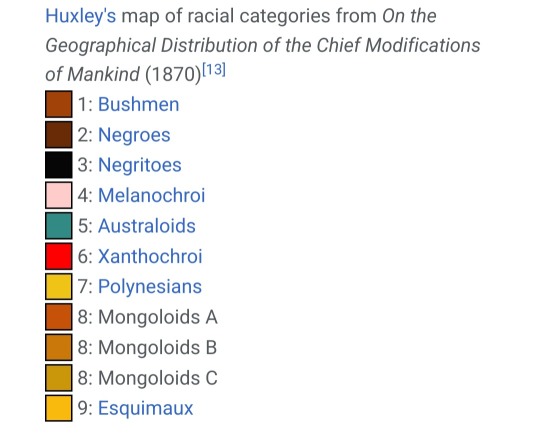
fascinated by whatever is going on in western india in general
This is Thomas Henry Huxley btw famously known as "Darwin's Bulldog," coiner of the term agnosticism, instrumental in developing scientific education in Britain, but also, more interestingly a known abolitionist who argued for a "continuum of races". There was apparently a big dust up at Imperial about getting his name off buildings a few years ago, this was a letter written in his defense.
33 notes
·
View notes
Text
How many of these "Top 100 Books to Read" have you read?
(633) 1984 - George Orwell
(616) The Great Gatsby - F. Scott Fitzgerald
(613) The Catcher In The Rye - J.D. Salinger
(573) Crime And Punishment - Fyodor Dostoyevsky
(550) Catch-22 - Joseph Heller
(549) The Adventures Of Tom And Huck - Series - Mark Twain
(538) Moby-Dick - Herman Melville
(534) One Hundred Years Of Solitude - Gabriel Garcia Marquez
(527) To Kill A Mockingbird - Harper Lee
(521) The Grapes Of Wrath - John Steinbeck
(521) Lolita - Vladimir Nabokov
(492) Pride And Prejudice - Jane Austen
(489) The Lord Of The Rings - Series - J.R.R. Tolkien
(488) Brave New World - Aldous Huxley
(480) Ulysses - James Joyce
(471) Jane Eyre - Charlotte Bronte
(459) Wuthering Heights - Emily Bronte
(398) The Brothers Karamazov - Fyodor Dostoyevsky
(396) Great Expectations - Charles Dickens
(395) To The Lighthouse - Virginia Woolf
(382) War And Peace - Leo Tolstoy
(382) The Sun Also Rises - Ernest Hemingway
(380) The Sound And The Fury - William Faulkner
(378) Alice's Adventures In Wonderland - Series - Lewis Carroll
(359) Frankenstein - Mary Wollstonecraft Shelley
(353) Heart Of Darkness - Joseph Conrad
(352) Middlemarch - George Eliot
(348) Animal Farm - George Orwell
(346) Don Quixote - Miguel de Cervantes Saavedra
(334) Slaughterhouse-Five - Kurt Vonnegut
(325) Les Misérables - Victor Hugo
(320) Harry Potter - Series - J.K. Rowling
(320) The Chronicles Of Narnia - Series - C.S. Lewis
(317) Anna Karenina - Leo Tolstoy
(308) Lord Of The Flies - William Golding
(306) Invisible Man - Ralph Ellison
(289) The Golden Bowl - Henry James
(276) Pale Fire - Vladimir Nabokov
(266) Gone With The Wind - Margaret Mitchell
(260) The Count Of Monte Cristo - Alexandre Dumas
(255) The Hitchhiker's Guide To The Galaxy - Series - Douglas Adams
(252) The Life And Opinions Of Tristram Shandy, Gentleman - Laurence Sterne
(244) Madame Bovary - Gustave Flaubert
(237) Vanity Fair - William Makepeace Thackery
(235) The Trial - Franz Kafka
(233) Absalom, Absalom! - William Faulkner
(232) The Call Of The Wild - Jack London
(232) Emma - Jane Austen
(229) Beloved - Toni Morrison
(228) Little Women - Louisa May Alcott
(224) A Passage To India - E.M. Forster
(215) Dune - Frank Herbert
(215) A Portrait Of The Artist As A Young Man - James Joyce
(212) The Stranger - Albert Camus
(209) One Flew Over The Cuckoo's Nest - Ken Kesey
(209) The Idiot - Fyodor Dostoyevsky
(206) Dracula - Bram Stoker
(205) The Picture Of Dorian Gray - Oscar Wilde
(197) A Confederacy Of Dunces - John Kennedy Toole
(193) Mrs. Dalloway - Virginia Woolf
(193) The Age Of Innocence - Edith Wharton
(193) The History Of Tom Jones, A Foundling - Henry Fielding
(192) Under The Volcano - Malcolm Lowry
(190) The Odyssey - Homer
(189) Gulliver's Travels - Jonathan Swift
(188) In Search Of Lost Time - Marcel Proust
(186) Midnight's Children - Salman Rushdie
(185) An American Tragedy - Theodore Dreiser
(182) The Book Thief - Markus Zusak
(180) Siddhartha - Hermann Hesse
(179) The Magic Mountain - Thomas Mann
(178) Things Fall Apart - Chinua Achebe
(178) Tropic Of Cancer - Henry Miller
(176) The Outsiders - S.E. Hinton
(176) On The Road - Jack Kerouac
(175) The Little Prince - Antoine de Saint-Exupery
(173) The Giver - Lois Lowry
(172) Brideshead Revisited - Evelyn Waugh
(172) A Clockwork Orange - Anthony Burgess
(171) Charlotte's Web - E.B. White
(171) The Ambassadors - Henry James
(170) Infinite Jest - David Foster Wallace
(167) The Complete Stories And Poems - Edgar Allen Poe
(166) Ender's Saga - Series - Orson Scott Card
(165) In Cold Blood - Truman Capote
(164) The Wings Of The Dove - Henry James
(163) The Adventures Of Augie March - Saul Bellow
(162) As I Lay Dying - William Faulkner
(161) The Hunger Games - Series - Suzanne Collins
(158) Anne Of Greene Gables - L.M. Montgomery
(157) Atlas Shrugged - Ayn Rand
(157) Neuromancer - William Gibson
(156) The Help - Kathryn Stockett
(156) A Song Of Ice And Fire - George R.R. Martin
(155) The Good Soldier - Ford Madox Ford
(154) The Da Vinci Code - Dan Brown
(153) I, Claudius - Robert Graves
(152) Wide Sargasso Sea - Jean Rhys
(151) The Portrait Of A Lady - Henry James
(150) The Death Of The Heart - Elizabeth Bowen
#books#book lists#p#im posting this so i can reblog it with my own crossed out list and i encourage others to do the same if you want to#i dont actually know how many ive read yet myself
21 notes
·
View notes
Text
Pac-Man pellets...& chess
The chess-board is the world; the pieces are the phenomena of the universe; the rules of the game are what we call the laws of Nature. The player on the other side is hidden from us. We know that his play is always fair, and patient. But also we know, to our cost, that he never overlooks a mistake, or makes the smallest allowance for ignorance., Thomas Henry Huxley

Pac-Man
Another thing that also points to Max being the "Pac-Man" is that we see her taking pills throughout Season 4. - Brenners words and this subtle but obvious clue through the board game "Can't stop" are connecting "One", "gaming" and Max.
Showing her taking the pills to underline her depression is one thing - however, rarely do things have just a single meaning in Stranger Things.
Lucas putting his hand on her mouth while there's the Pac-Man arcade machine behind her is quite clearly pointing to her too be a power user being able to absorb. If the Pac-Man would be (just) Vecna, why give Max some stupid lines, blabbering about what Lucas just told her in the public, so that Lucas panics and covers her mouth, stopping her from further opening it with each word? With the Pac-Man arcade directly behind her head.
Pac-Man: Paku paku taberu - to gobble something. To consume.

Like Max gobbling a red Skittle mid air in Season 3? Note the use of the Coke vending machine, a repeated pattern and the brand can be seen on Max's shelf too and there's a drawing by Will showing the boys in front of/meeting a Coke vending machine ( besides the "Can't stop" game that connects Brenner’s "If you want to stop One..." dialog with gaming.).
Taking her pills is like eating your way through the stage in Pac-Man: The Player who is Pac-Man has to eat all the pellets or Pac-Dots in order to clear the stage. (and by gaining points he may get an extra life).
Someone made an interesting observation, that in the mind lair, the red mist kind of behaves and I quote: "like in a video game".

That's called a "fog of war", the further you move the more is revealed - once again showing us that Max isn't just a piece on the board but quite clearly the gamer:
The Immortal Game
Bear with me, it may sound complicated, and it may help to watch the scene muted only focusing on the chess moves.
There are two invisible players when El and Henry play chess. Vecna and the Zoomer. The gamer who plays white isn't Henry but obviously a hidden person: Vecna/Edward(?) (so Henry either collaborates or is forced to do his bidding).
Huxley refers to a hidden player but it's logical that this player isn't just on one side but on either side of the board. Two players, hidden from us. And the patent, waiting to make their move. Which means that the hidden player on the other side is not El playing, its someone else. The Zoomer even though no one is aware of him....her.
Note that El is very vocal even though barely able to speak in S1 - as if they share certain abilities or the memories of El and the Zoomer are mixed. Or the Zoomer says something (in mind) and El repeated that like they showed us in several ElMax moments:
The appearance of the zooming effect (alongside other obvious and less obvious clues) leads to the conclusion that there's indeed another person in the room. (If there's darkness, then there's light. Funny enough it's quite clearly hinted at in the show in dialog. ). Remember how Henry says that One moves people like pieces on this board. Well...which One?
There are three Ones. In 00I and in 0II. And since Owens low-key referred to El as One, there's another One in 0II. Everything points to the Zoomer - Max.
And the Zoomer is the hidden player: she uses the hawk like bait, similar to what happened in the Season 4 finale - the Immortal Game was won through high losses. - Max offered herself as bait for Vecna. Same way the player who is playing black sacrificed the hawk/knight. It's heavily implied by connecting this move with the events by the end of S4, the zooming effect, Max calling herself a Zoomer, that she's the player. - She then indirectly called for El by trying to shut out Vecna, the Coke bottle points to El and El appears.
Max = Zoomer personality.
And keep in mind: It's a metaphor. These chess moves are only over simplifying the actual events in Season 4.
But let's take a look at it:
Behind El is a sign saying Pawn in Season 2 right next to a Coke vending machine. So, she's the pawn that takes the owl/bishop.
It's even obvious when you know that Wi-nteko-wa is a proto word for Wendigo, and it means Owl (even though Vecna isn't the only Wendigo): Vecna = Owl/bishop.
Which means Max is the knight/hawk as we see her in the memories from a scene in Season 3 next to the bird prey (falcon or hawk) poster in El's room.
And the "captured" hawk stays on Elevens side, exactly on the dividing line. Brilliantly implying that Max was not absorbed (there are to many elements that debunk that absorption theory) because she stays on her side. Like in a shot of El approaching Vecna, we can see Max in the background on her side of the frame that is split in half, that Max is only taking out of the game. A taken piece can be brought back into the game via a pawn promotion. Eleven then btw removes the owl completely.
Simply put:
Hawk/Knight = Max
Owl/Bishop = Vecna
Wren/Pawn = El
Hawk is moved and sacrificed, Owl takes Hawk, Wren takes Owl.
Max is moved and sacrificed, Vecna takes Max, El takes Vecna.
Max made herself the bait, this way Vecna could be "beaten" by El - but the game isn't over just by taking the Owl/bishop. And even though it doesn't look like it, this move on the board that was shown in the Piggyback was commented through El's dialog "No. You have [lost]." - Then the UD team does the rest by setting Vecna on fire.

By the end we see El walking into the grey part of the field, its the half white, half black field in the DnD game. So, the pawn moves on the other side of the board - "This is Max" would then in chess terminology be a pawn promotion, changing El as the pawn into a piece of her choice (which can be a previously taken pieces): the hawk/knight. Meaning that El becomes Max.

This way you bring back a piece into a chess game. Usually you'd go for a Queen but depending on the strategy a Knight is also good. And knight's usually are shown as horses.
Metaphorically she would then remove the hood of the hawk. As they foreshadow it in this scene. - It looks as if he's blinding El but he didn't. It was Max. Another clue, like the differences in memories scenes, that in connection with the zooming effect point more to different points of view (even though I wouldn't rule out that they want to allude to different timelines too)

The game figures are from Blade Runner and in the film it's a nod to what is called the "Immortal Game" - the black pawns in this version are wrens.
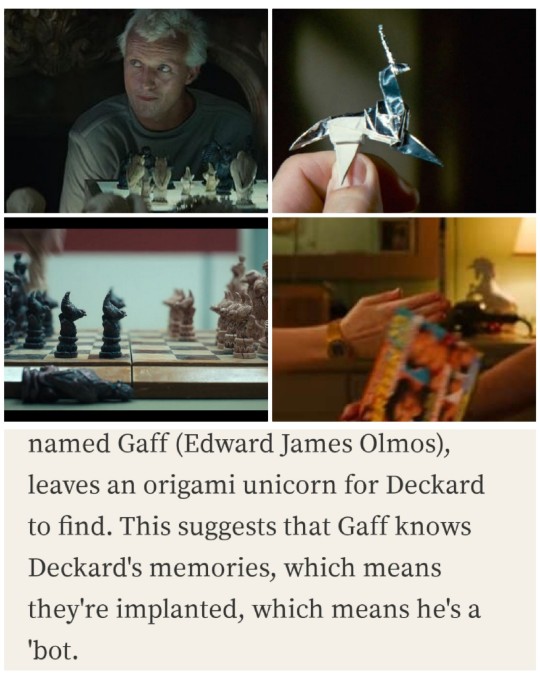
The unicorn may not only refer to One and the horse in Will's painting (as I mentioned earlier) but also be a reference towards Blade Runner too. The meaning of the unicorn in Blade Runner has been talked and speculated about a lot. My guess is that all interpretations are true to a degree. One interpretation is that since Deckard dreams of a Unicorn, it means that he is a Replicant himself and his memories are actually implanted.
And I wouldn't dismiss the idea of that being the case in Stranger Things. Actually, I'm convinced that this is the case. Mkultra as a mind control project was...about that. And this could explain what El's and Max's secret is since the Unicorn is in the scene directly where Max does the Karate-chop hand gesture, like splitting something in half (like what happened in the lab): the memories of their lifes were implanted, altered, don't add up. Why else use the zooming effect? Why does Max calls herself a Zoomer if this isn't exactly that. A personality taking over or at least zoom in to take the wheel. And they might not be the only ones. I suspect Hopper's memories are also faked. About Sara. His ghost.
There's also a spinning top/Inception reference next to a chess board. Remember how ElMax is connected to spinning.
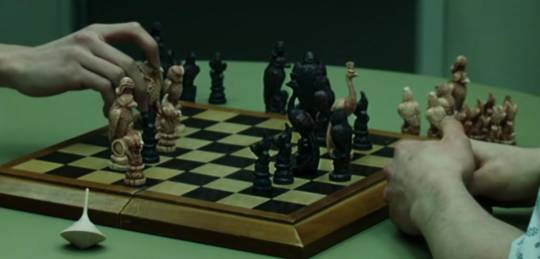
Gamers game:
That's how the show introduced us to Max, something we might have lost our focus on, a gamer:

Besides the fact that she's wearing red (that jacket reappears in one of the Vecna hallucinations in 4),she's in first place... 1st. As in One.
It is not very subtle. Especially in regards to games being played in this show. Like chess. And there's a whole lot of checkerboard patterns near or connected to Max too. (And I'd argue that there are more.)

Above Max in S3 in the ElMax shopping scene (which holds a lot of clues), Lumax holding hands, the shield Lucas is holding, on the magazine cover that El is reading (next to the term "Kaleidoskop" like in "a brilliant kaleidoscope of colors" aka rainbow which Max is wearing in the scene - kinda wearing the whole LGBTQ flag - and there are some sort of fans on it too? Not sure)
And Will? He's also a gamer. - I bet if you dive into his character having games in mind, you'll find what his role in this is too. I mean, I talked about the parallels and mirrors that Will and Max have, including the "crowbar incident" and I have some vague ideas but I leave it up to others. After all: it's these two the plot of 5 will be about. (Although there's something I DO want to talk about in regards to Dr Henry Jekyll and Edward Hyde.)
Werewolves & vampires
This is connected to the rabies, werewolves/vampires and the Wendigo/Ravenous elements in the show. And how cannibalism is many times used as a metaphor for queerness and queer love. And I'll talk over that separately. A bit about "The Quarry" (even though it's not an inspo as it released in '22 but to showcase that writers have similar ideas), Van Helsing and Underworld.
PS: I actually just wanted to point out that Max takes her pills like Pac-Man eats the pellets...😁
#max mayfield#elmax#stranger things#el hopper#stranger things analysis#elmax is endgame#vecna#stranger things theory#stranger things eleven#max stranger things
16 notes
·
View notes
Text
Os 100 livros para ler antes de morrer
Os livros lidos estão riscados!
A arte da guerra (Sun Tzu)
Hamlet (william Shakespeare)
O banquete (Platão)
A divina comédia - Inferno (são 3 livros) (Dante Alighieri)
O processo de Kafka (Kafka)
O morro dos ventos uivantes (Emilly Bronte)
O pequeno príncipe (Antoine de Saint – Exupéry)
Orgulho e preconceito (Jane Austen)
O princípe (Nicolau Maquiavel)
A Odisseia (Homero)
O vermelho e o negro (Stendhal)
O velho e o mar (Ernest Hemingwai)
Homem invisível (Ralph Ellison)
Dom Quixote (Miguel de Cervantes)
Moby Dick (Herman Melville)
1984 (George Orwell)
Crime e castigo (Fyodor M. Dostoyevsky)
A Ilíada (Homero)
Madame Bovary (Gustave Flaubert)
A montanha mágica (Thomas Mann)
Cem anos de solidão (Gabriel Garcia Marquez)
Otelo (William Shakespeare)
Ulysses (James Joyce)
Guerra e Paz (Leo Tolstoy)
As viagens de Gulliver (Jonathan Swift)
O nome da rosa (Umberto Eco)
Alice no País das maravilhas (Lewis Carroll)
Vinte mil léguas submarinas (Julio Verne)
Leviatã (Thomas Hobbes)
Fahrenheit 451 (Ray Bradbury)
Armas, germes e aço: os destinos das sociedades humanas (Jared Diamond)
O diário de Anne Frank (Anne Frank)
O conto da aia (Margaret Atwood)
O iluminado (Stephen King)
O sol é para todos (Harper Lee)
A revolução dos bichos (George Orwell)
A flecha de Deus (Chinua Achebe)
Utopia (Thomas More)
Gargantua (François Rabelais)
Pantagruel (François Rabelais)
Ensaio sobre a Cegueira (José Saramago)
Édipo Rei (Sófocles)
Os miseráveis (Victor Hugo)
Os Lusíadas (Luis de Camões)
Os três mosquiteiros (Alexandre Dumas)
Decamerão (Giovanni Boccaccio)
As mil e uma noites (Sem autor)
Amor no tempo do cólera (Gabriel Garcia Marquez)
A epopeia de Gilgamesh (Sem autor)
O livro do Desassossego (Fernando Pessoa)
Livro de jó (Bíblia Sagrada)
O retrato de Dorian Gray (Oscar Wilde)
Ismael: um romance da condição humana (Daniel Quinn)
Medeia (Euripides)
Robinson Crusoé (Daniel Defoe)
Contos de Andersen (Hans Christian Andersen)
Conde de Monte Cristo (Alexandre Dumas)
O mundo de Sofia (Jostein Gaarder)
A condição humana (Hannah Arendt)
Laranja mecânica (Anthony Burgess)
O elogio da loucura (Erasmo de Roterdã)
A sangue frio (Truman Capote)
Ardill 22 (Joseph Heller)
Adeus às armas (Ernest Hemingway)
Admirável mundo novo (Aldous Huxley)
Todos os Contos (Edgar Allan Poe)
A morte de Ivan Ilyuich (Leo Tolstoy)
Mahabharata (sem autor)
Contos de Canterbury (Geoffrey Chaucer)
Os irmãos Karamazov (Fyodor M Dostoyevsky)
Tom Jones (Henry Fielding)
A consciência de Zeno (Italo Svero)
Amada (Toni Morrison)
Os filhos da meia-noite (Salman Rushdie)
O tambor (Gunter Grass)
O idiota (Fyodor M Dostoyevsky)
As metamorfoses (Ovídio)
O som da montanha (Yasunari Kawabata)
Ensaios (Michel de Montaigne)
Senhor das moscas (William Golding)
As vinhas da Ira (John Steinbeck)
O grande Gatsby (F. Scott Fitzgerald)
O jogo da amarelinha (Julio Cortázar)
O estrangeiro (Albert Camus)
Memórias de Adriano (Marguerite Yourcenar)
O lobo da Estepe (Herman Hesse)
O apanhador no campo de Centeio (J. D. Salinger)
Rumo o farol (Virginia Woolf)
O castelo (Franz Kafka)
Anna Karenina (Leo Tolstoy)
O som e a fúria (William Faulkner)
O homem sem qualidades (Robert Musil)
As aventuras de Huckleberry Finn (Mark Twain)
Almas mortas (Nikolai Gogol)
Pedro Paramo (Juan Rulfo)
Folhas de relva (Walt Whitman)
Viagem ao fim da noite (Louis Ferdinand Celine)
Lolita (Vladimir Nabokov)
Eneida (Virgílio)
Em busca do tempo perdido (7 livros) (Marcel Proust)
21 notes
·
View notes
Note
Drfudge, I remember you have some book recs posts but I can't find any, so I'd like to ask you what are your all time fave books, if it's okay. Thank you <3
you should check out my "books", and "book rec" tags on my blogs, but here is an updated list of some of my favorites (including essays and short stories):
what a carve up, by jonathan coe
excellent women, by barbara pym
restoration, by rose tremain
invitation to the waltz, by rosamond lehmann
journal d'hirondelle, by amelie nothomb
oblomov, by ivan goncharov
kiss me first, by lottie moggach
the idiot & demons, by dostoevsky
the idiot, by elif batuman
revolutionary road, by richard yates
the girl in the flammable skirt, by aimee bender
out of the woods, by chris offutt
hygiene de l'assassin, by amelie nothomb
memoirs of a dutiful daughter, by simone de beauvoir
chevengur, by andrei platonov
the master and margarita, by bulgakov
the corrections, by jonathan franzen
hamlet & king lear by shakespeare
richard iii & henry vi, part 1, by shakespeare
a midsummer night's dream, the taming of the shrew & as you like it by shakespeare
i capture the castle, by dodie smith
point counter point, by aldous huxley
arcadia, by tom stoppard
stoner, by john williams
eugene onegin, by pushkin
paradise lost & samson agonistes, by john milton
the age of innocence, by edith wharton
katherine mansfield's diaries & short stories
axel's castle, by edmund wilson
the dead, by james joyce
the heat of the day, by elizabeth bowen
pride and prejudice, by jane austen
franny and zooey, by salinger
the stranger, by albert camus
seduction and betrayal, by elizabeth hardwick
the beguiled, by cullinan thomas
girl with a pearl earring, by tracy chevalier
the wine of solitude, by irene nemirovsky
dark entries, by robert aickman
capitalist realism, by mark fisher
the blizzard, by vladimir sorokin
karate chop, dorothe nors
go, went, gone, by jenny erpenbeck
the blind firman, by ismail kadare
actress, by anne enright
genius and ink, by virginia woolf
real life, by brandon taylor
the world of yesterday, by stefan zweig
doce cuentos peregrinos, by gabriel garcia marquez
selected stories by anton chekhov
stories of your life, by ted chiang
ornament and silence, by kennedy fraser
the accompanist, by nina berberova
there are many others, including some romanian faves that i won't mention in this list, but this should give you a good overview!
34 notes
·
View notes
Text

Title: Thomas Henry Huxley
Artist: John Collier
Date: 1885
Style: Realism
Genre: Portrait
#art history#art#painting#artwork#history#museums#culture#vintage#curators#classicalcanvas#realism#portrait#john collier
37 notes
·
View notes
Text
Why defining "birds" precisely is hard
(A reply to @lyxthen-reblogs that got too long and is now its own post)
A long time ago (in the 1700s), we didn't really have any idea of how birds came about - evolutionary theory itself would have to wait another century! And, we didn't have knowledge of extinct species either, or even of the fact extinction was a thing. Carl Linnaeus, when setting up the first taxonomical classification of life, grouped modern birds in the class Aves. Mammals were grouped in Mammalia, reptiles, amphibians and cartilaginous fish in Amphibia, bony fish in Pisces, arthropods in Insecta and all other animals in Vermes.
This first classification was pretty crude, and, around 1820, scientists like de Blainville and Latreille began distinguishing reptiles from "batrachians" as separate classes. De Blainville, pointing out similarities between reptiles and birds, labelled the former as "ornithoid" (bird-like) while amphibians were "ichthyoid" (fish-like). In 1825, Latreille fully separated amphibians (Batrachia, later Amphibia) from reptiles (Reptilia).
The first major turning point for taxonomy came in the next decades, as many fossils of now-extinct creatures were unearthed. In 1842, Richard Owen coined the term Dinosauria, then uniting the recently discovered Megalosaurus, Hylaeosaurus and Iguanodon.
But it wouldn't be until the 1860s that Darwinian evolution would highlight the flaws in the earlier understanding of separate classes. In 1863, Thomas Henry Huxley would suggest uniting birds and reptiles, creating the class Sauropsida the next year. Huxley was the first to suggest birds evolved from dinosaurs, comparing the recently-discovered Archaeopteryx (1861) with Compsognathus. As cladistics didn't exist back then, no attempt at precisely extending the definition of "bird" to extinct forms was made, even though Archaeopteryx was usually called "the first bird" (Urvogel).
Unfortunately, this hypothesis would be shelved for a whole century, leading to little progress happening in terms of understanding bird evolution. It wouldn't be until the 1960s and the Dinosaur Renaissance that the links between birds and dinosaurs would be rediscovered, with birdlike theropods like Deinonychus being unearthed. This would really accelerate with the discovery of extremely well-preserved feathered dinosaurs, starting with Sinosauropteryx in 1996.
With numerous fossils showing steps of a gradual dinosaur-to-bird transition, the question of defining the "first bird" came to be asked again. To try to answer this, Jacques Gauthier coined the clade Avialae in 1986 as all dinosaurs more closely related to modern birds than to deinonychosaurs. This included Archaeopteryx, which other authors used for an alternate definition of Avialae: "the smallest clade containing Archaeopteryx and modern birds".
Still, the conflict didn't end there. Fundamentally, there were many ways to extend Aves (as defined from modern birds) to past ancestors, and, in 2001, Gauthier and de Quieroz identified four. Avemetatarsalia, defined as any archosaur closer to birds than to crocodilians (including all dinosaurs and pterosaurs!). Avifilopluma, defined as any archosaur possessing feathers homologous to bird ones. Avialae, redefined as any dinosaur able to fly (and their flightless descendants). And finally, Aves or Neornithes, the crown-group (the last common ancestor of modern birds, and its descendants).
The issues were many. Avifilopluma became mostly useless as a definition as ornithischians, then pterosaurs, were found to possess filaments homologous with bird feathers. Virtually every bird-line archosaur (with the possible exception of the little-known aphanosaurs) could likely fit in this clade, and its content was too uncertain to be reliably used.
Meanwhile, Avialae had (and continues to have) three distinct definitions. Notably, the ability for flight itself proved to be a poor definition, as bird relatives (Maniraptora, including Deinonychus, Velociraptor, Oviraptor, and many other bird-like theropods) likely evolved flight several times, from the four-winged Microraptor to the bat-winged Yi qi. Truly, most maniraptorans were extremely bird-like: wings had evolved much earlier than flight itself, with even dinosaurs like Velociraptor sporting fully feathered wings despite being unable to fly.
So, what was left? The crown group Neornithes, a vaguely defined Avialae, a more extensive Maniraptora, the stem group Avemetatarsalia, and lots of confusion. Usually, Aves is taken today as referring to either Neornithes or Avialae, although Avifilopluma/Avimetatarsalia are also in use (for instance, the Sinosauropteryx discoverers used Avifilopluma, and considered it a bird).
But none of these definitions are inherently better or worse. They are all different ways of extending a definition made for modern creatures to have it apply to past ones.
50 notes
·
View notes
Text
My former English professor is retiring and gave away a bunch of the books in her office. She's a gem. I giddily returned to campus just to sort through her collection. Super excited about the ones I brought home with me. I thought someone else might appreciate some of the books I found.
I've already began poring over the poetry collections, but what should I read first? Are there any that you guys have read that you highly recommend?
Books included in Photo 1:
● Sense and Sensibility by Jane Austen (Alta Edition includin Persuasion)
● Robert Burns by David Daiches
● Far From the Madding Crowd by Thomas Hardy
● Leigh Hunt's What is Poetry? by Albert S. Cook
● Love Letters Between a Nobleman and His Sister by Aphra Behn
● Virginia Woolf: A Biography by Quentin Bell
● Holy Madness: Romantics, Patriots, and Revolutionaries 1776-1871 by Adam Zamoyski
● Earnest Victorians by Robert A. Rosenbaum
● Lord Byron: Selected Letters and Journals by Lord Byron, Leslie A. Marchand (Editor)
Books Included in Photo 2:
● Orlando by Virginia Woolf
● Brave New World by Aldous Huxley
● The Portable Irish Reader, (The Viking portable library) by Diarmuid Russell
● The Last Days of Pompeii by Edward Bulwer-Lytton
● Becoming a Heroine by Rachel M. Brownstein
● To the Lighthouse Virginia Woolf
● East Lynne by Ellen Wood, writing as Mrs Henry Wood
● Poetry and Prose of Alexander Pope edited by Aubrey Williams
● In Memoriam; An Authoritative Text, Backgrounds and Sources, Criticism (Norton Critical Editions) by Alfred Tennyson
● Daughters and Fathers by Lynda E. Boose, Betty S. Flowers
Books Included in Photo 3:
● Jude the Obscure by Thomas Hardy
● A Sentimental Journey by Laurence Sterne
● Goblin Market and Other Poems by Christina Rossetti (Dover Thrift Editions)
● Sound the Deep Waters: Women's Romantic Poetry in the Victorian Age includes works by Christina Rossetti, Elizabeth Barrett Browning, George Eliot, Alice Meynell, and Edith Nesbit
● The Jane Austen Book Club by Karen Joy Fowler
● The Monsters: Mary Shelley and the Curse of Frankenstein by Thomas Hoobler and Dorothy Hoobler
● Wordsworth and the Poetry of Human Suffering by James H. Averill
● Victorian Ghost Stories: By Eminent Women Writers (Part of the The Virago Book Series) edited by Richard Dalby
● The Blind Assassin by Margaret Atwood
● Victorian Poetry and Poetics by Walter E. Houghton G. Robert


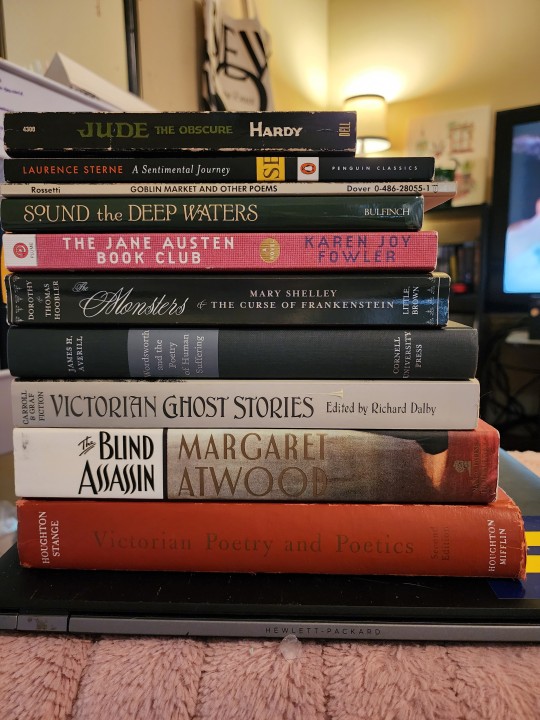
#bookish#bookworm#books#book haul#booklr#book tumblr#books and literature#booklover#booksbooksbooks#books & libraries#bookblr#book blog#women reading#reading#literature#english literature#literary fiction#literary#margaret atwood#jane austen#thomas hardy#virginia woolf#from the library of nikki howard
53 notes
·
View notes
Text
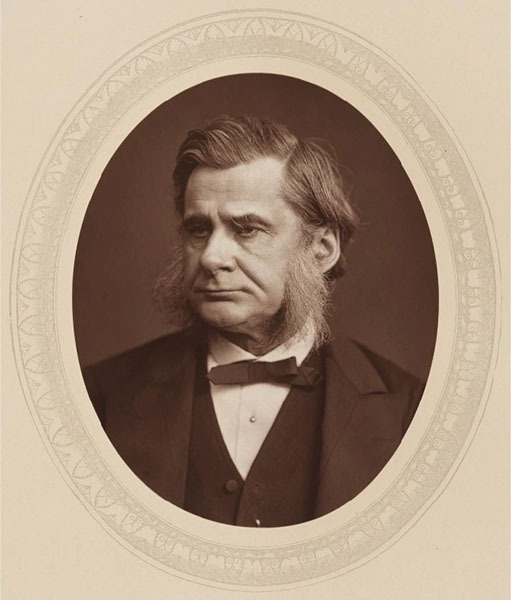
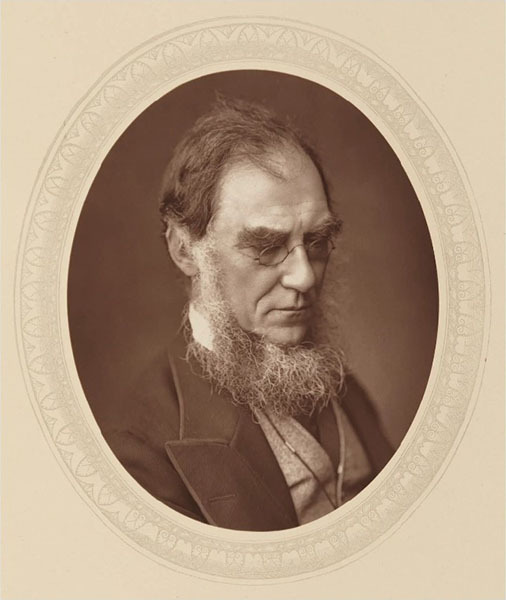
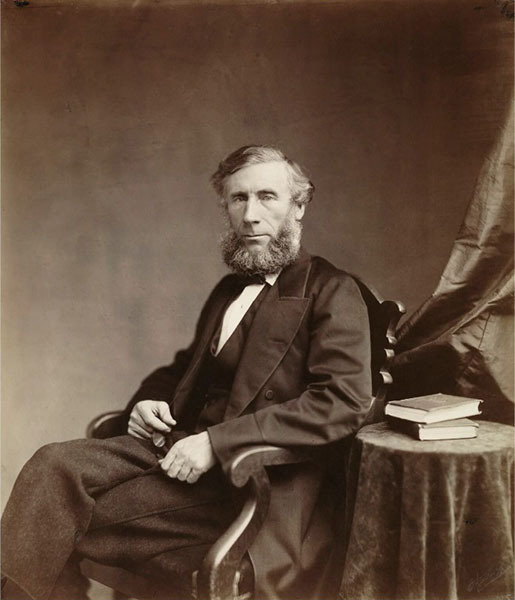

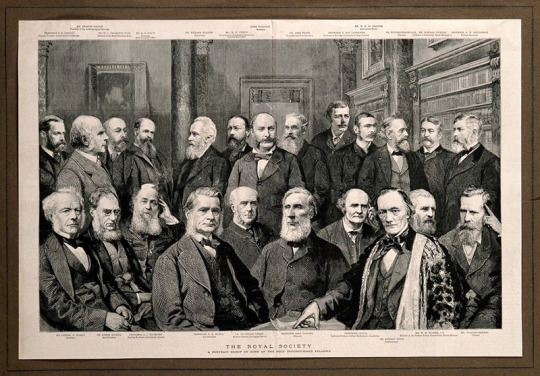
The X Club – Scientists of the Day
The X Club, a dinner club founded by Thomas Henry Huxley, met for the first time on Nov. 3, 1864, at St. George's Hotel on Albemarle Street in London.
read more...
#X Club#Thomas H. Huxley#histsci#histSTM#19th century#history of science#Ashworth#Scientist of the Day
11 notes
·
View notes
Text
Anonymous asked: It was primarily through your blog that I was introduced to the conservative philosophical thought of Sir Roger Scruton. You are the only blog to my knowledge that knows Scruton’s works inside out and communicate his ideas so clearly and with wit and intelligence. I’m currently going through the books on music he wrote. I admit I’m out of my depth reading The Aesthetics of Music. Please help! What does Scruton or indeed philosophers mean by aesthetics when it comes to music? I know this is a huge ask on such a big topic but if anyone can, I think you could.
I’m sure I’m not the only blog out there who post about the late Sir Roger Scruton’s works. I just post what I know and share what I can, and I make no claim to be an authoritative voice of his works. I did know Roger Scruton though. First as an admirer from afar, and then much later, having the privilege of meeting him on occasion such as a high table dinner in Cambridge or through other like-minded friends.
I think diving into Roger Scruton’s ‘The Aesthetics of Music’ (1999) is quite daunting even if you are familiar with his other works across aesthetics and politics and his conservative thought. It demands from the reader an above average understanding of two disciplines, music and philosophy, and is principally directed to his peers in academia. To some of his academic peers he represents the phenomenological-idealist perspective on music. I’m not quite how Scruton would see it but let’s not address that here. Indeed you don’t need to get bogged down in academic tiffs.

On the whole, Scruton, to his credit, never dumbs down in any of his other works and requires us to think harder than we’re used to. So don’t feel deflated but you have to learn what entry point into his works are best for you. His philosophical works on aesthetics are challenging to read because often we don’t possess the critical tools to unlock and understand concepts that are often misunderstood such as ‘beauty’ or ‘aesthetics’.
I would recommend anyone to start with his other works which may be a good introduction and an easier entry point to his thought on music. If you are a complete novice I would always start with ‘Beauty: a very short introduction’ (2010) which is an excellent primer to his thought on a range of topics. With regards to music itself I would then go onto ‘Music as art’ (2018) before moving onto ‘Understanding Music: Philosophy and Interpretation’ (2009) - a more challenging book. Of course you can also read his books on Wagner which also talks of aesthetics through Wagner’s operas in a more wider sense such as ‘The Ring of Truth’ (2016) and ‘Wagner’s Parsifal: The Music of Redemption’ (2020) - which also happens to be my favourite opera.
I honestly didn’t know where to start in answering your question because it’s such a huge and complicated subject. So I let it stew a bit at the back of my brain until I felt I could pen a few vaguely intelligible thoughts down for you. It’s not an ideal answer but it is an attempt. At the outset I’m not going to talk about Immanuel Kant because in a sense he got the ball rolling on the whole field of aesthetics. Not because I don’t like Kant, because I do, but because he takes up too much space here and I would never do him justice.

Let’s step back a bit and start with the idea of aesthetics first. Aesthetics is classically defined as the study of the beautiful in art. Thomas Henry Huxley, a Victorian biologist best remembered as ‘Darwin’s bulldog,’ set the definition as a list: a beauty in appearance, visual appeal, an experience, an attitude, a property of something, a judgment, and a process. This expanded meaning touches on the original Greek aisthesis, which deals with feelings and sensations. Aesthetics, in this sense, is not limited to the thing itself, but rather is a holistic term encompassing the focal point - the object, performance, atmosphere, etc. - and the experience of and response to that focal point.
However, Huxley’s elucidation, like many others, say some critics, suffers from an over-emphasis on beauty. While aesthetic engagement often involves perceptions of beauty, this is not the only (or even foremost) criterion of artistic merit. Art can be aesthetically satisfying without necessarily being “beautiful” in the conventional sense of eliciting pleasure.
Applied to music, aesthetics might be conceived as the relationship of music to the human senses. Rather than judging whether or not a composition is beautiful, or why one piece is more beautiful than another, attention shifts to the interplay between musical stimuli and the interior realm of sensations. The onus of appraisal moves from the cold tools of theoretical analysis to the auditor.
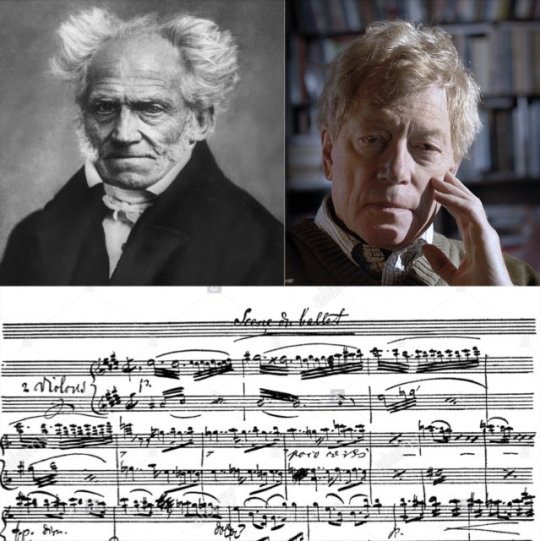
For some thinkers, this is the only appropriate location for aesthetic assessment. Nineteenth-century philosopher Arthur Schopenhauer argued that music taps into channels of pure emotions: “Music does not express this or that particular and definite joy, this or that sorrow or pain, or horror, or delight, or merriment, or peace of mind; but joy, sorrow, pain, horror, delight, merriment, peace of mind themselves, to a certain extent in the abstract, their essential nature, without accessories, and therefore without their motives.” T. H. Yorke Trotter, founder and principal of the London Academy of Music, echoed Schopenhauer in a 1907 lecture, stating that, while other art forms awaken ideas and images that act on the feelings, music directly stirs “dispositions which we translate by the vague terms, joy, sadness, serenity, etc.”
In this revised view, aesthetic value does not depend on the micro or macro features of a piece, per se, but on how one responds to those features. Emotional arousals are instant aesthetic judgments. It is no accident that the perceived qualities of a piece or passage mirror the responses induced: joyful, mournful, serene, and so forth. The intensity of the emotion might separate one piece from another, but the immediacy of the music - as Schopenhauer and Yorke described it - seems to defy such classifications. Among other things, integrating (or equating) aesthetics with emotions underscores the subjectivity of the topic, and highlights the interconnectedness and simultaneity of stimulus, experience, and evaluation.
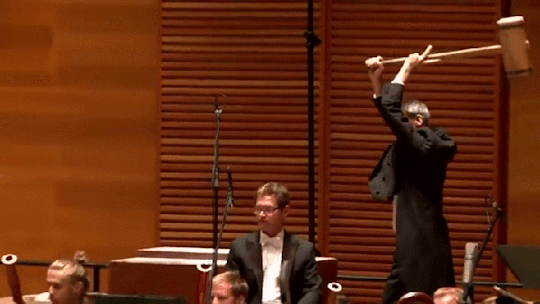
When one talks about feelings and music we inevitably come to the issue of sound. Music is sound - or the gaps between it too if you want to be precise like famed Argentine pianist and conductor Daren Barenboim.
The raw materials of music include pitch, rhythm, durations, dynamics, texture and timbre. The deliberate ordering of these building blocks of sound and silence produces what we instantly recognise as a musical creation. To be sure, definitions of music vary from rigid to loose, and postmodern requirements are not always as stable or confined as conventional views. But, however far the envelope is stretched and however ambiguous music is made out to be, most of us can agree with seventeenth-century English churchman Thomas Fuller: “Music is nothing else but wild sounds civilised into time and tune.”
Understandably then, comments on the nature of music usually address its audibility: it is an art form directed at the ears. Our sense of hearing distinguishes between music and the other sounds that constantly bombard us. The very concept of music derives from and depends upon our faculty of perceiving sound. Yet it can be argued that the ears are merely the necessary entry point. As soon as we are made aware of music, it is translated into mood, memory and movement. As poet Wallace Stevens eloquently wrote: “Music is feeling, then, not sound.”

The listener’s response to specific music will vary in type and intensity. She might feel very hopeful, a little bit sad, extremely calm, slightly anxious, and so on. These reactions may or may not be the intention of the composer or performer, and may change according to when and where the piece is heard. But in almost every instance, human perception converts music into feeling.
Perhaps the clearest evidence of this is how we typically portray music. We most often fixate on music’s experiential properties, or its “personality.” Anthropomorphic qualities are freely projected upon a piece: charming, aggressive, warm, tender, brutish, exuberant, consoling, frustrating, etc. This is partly because of the difficulty of identifying and discussing music’s formal properties. But it is mainly because the formal properties are but a means to an end. When we call a composition happy, we are basically saying that it makes us feel happy. The resulting emotion is so dominant that it becomes the character of the music. Priority is given to effect over sound.
In some sense, music can be thought of as a delivery system for emotional content. We do not experience music so much as we experience ourselves experiencing music. Our ears funnel the sound to a deeper layer of our being, a layer where sound is made significant. Of course, not all music is equally effective and not every listener is equally moved by musical stimuli. But even the most literate musicians and harshest critics will admit, readily or reluctantly, that music is predominantly about emotions. It only begins as sound.

And now we come to Roger Scruton. Scruton ask the basic question if music is sound can it also be a language?
Scruton’s gives illuminating illustrations to address this question. For example, he writes about one episode that under the Stalinist regime, the last movements of Tchaikovsky’s 6th Symphony were often reversed in order to bring the work to a triumphal, rather than despairing, conclusion. The reason that listeners find this reversal unsatisfactory, says Roger Scruton, is that the third movement cannot be heard as an answer to the fourth. But why does its failure to respond seem wrong? Why should we even expect to hear it as an answer? And should we describe the Sixth Symphony as an expression of Tchaikovsky’s despair, an evocation of its listeners’ despair, or the depiction of despair in general?
Such questions, never satisfactorily answered, trouble musical aestheticians, and are tackled by Scruton’s impressive range across music, philosophy, and cultural aesthetics. His quest begins with the rudimentary but difficult question ‘what is a sound?’ and, using musical illustrations, builds up through music’s aspects to its place in morality and culture. Sounds, Scruton argues, are ‘pure events’, which do not happen to any thing. Unlike colours, tastes and textures with which they are often classed, sounds are emitted by, but not inherent in, what produces them. But whereas with a nonmusical sound we may often hear it as what produced it (for instance, ‘hear a car’ or ‘hear a bell’), a musical tone is quite cut free from its causal moorings. We hear it not as ‘someone playing the oboe over there’ and ‘someone playing the violin a few feet away’ but as part of a musical gestalt. Each note seems to be engendered by its precursor and rightly to respond to it “as though indifferent to the world of physical causes.”
Similarly we hear notes as higher and lower, rising and falling, and the melody moves from its beginning to its end. Yet where could the movement of pitch and melody occur? We refer to material sounds, yet under a description that no material sounds could satisfy, and to abandon these metaphors is to abandon discussion of music, which cannot dispense with them.

Music does not fit into a scientific account of the world, any more than a smile does, but is part of the world as we live it, and even of a world beyond contingency. For, says Scruton, in the inexorable necessity by which “each note requires its successor” we glimpse true freedom – the ‘causality of reason’ which belongs to rational action, the ‘transcendental unity’ of our scattered selves. And in gaining “a first-person perspective on a life that is no one’s”, we enter a ‘dance of sympathy’ with others.
This abstract, mystical argument is a gradually accumulating motif through Scruton’s concrete technical examples. As usual his wistful mysticism is accompanied by slashing ‘take no prisoners’ attacks - on the Marxist reductionism that would degrade the last five centuries of European music to an accident of power relations, on how ‘early music’ authenticity only fossilises and obscures the music it purports to reconstruct, on sentimentality and cliché.
All of which he is right and I’ve never come across a Marxist or far left leaning cultured aesthete to argue otherwise - if anyone knows of any I would be grateful to them for pointing them out to me as I want to be open to contrarian views. But to be honest, I’ve not seen anything to refute what Scruton’s says how Marxism cultural thought reduces art and culture to mere power relations. It’s like they have a one lens to see the world and it blinds them to nuance and complexity as only true conservatives are apt to see and then lament.
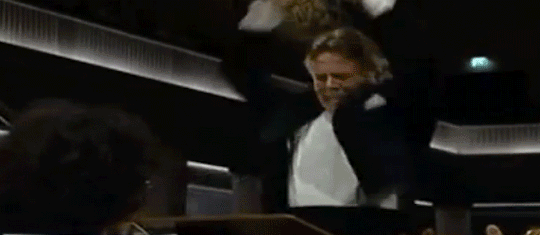
Which brings me nicely to where all this is going in terms of real world stakes and consequences . Like Plato, Scruton sees music as an important moulder of, and index to, a culture’s moral character. He has written movingly how much he laments the way tonality is no longer available to composers in our current spiritual condition, and the loss of exclusive standards of taste which, paradoxically, enabled a universality of allusiveness. He mourns the decay of aristocratic culture, the rampancy of anomie and consumerism. Instead we’re left with cheap disposable music as quickly consumed as a McDonald’s meal. He has described Mary J Blige’s “Get to Know You Better” that its limited melody is “emphasised by the yukky 13th chords and droopy vamping which open the piece, with a sound that suggests someone trying carefully to puke into a wine glass.” Ouch.
I personally think he has a point but I still think he doesn’t appreciate what other musical art forms such as jazz (which I love) can also reach the heights of aesthetic beauty. I would say the same for 70s rock music (Led Zeppelin for example) and other forms of music. I would consider myself less militant than Scruton in that regard but at the same time I understand where he is coming from.

All this may sound (pardon the pun) like the grumblings of Scruton as a curmudgeonly old man charting the passing of a decaying Western civilisation, but if music is a language then how much more we are blasé about losing local languages and dialects - even within one country - that were once thriving and spoken but now are either dead or dying.
Elsewhere in his writings he laments the triumph of American-English that is almost complete. Of course the merit of English as a global language is that it enables people of different countries to converse and do business with each other. But languages are not only a medium of communication, which enable nation to speak unto nation. They are also repositories of culture and identity.
In many countries the all-engulfing advance of English threatens to damage or destroy much local culture. This is sometimes lamented even in England itself, for though the language that now sweeps the world is called English, the culture carried with it is increasingly American. Native English-speakers, however, are becoming less competent at other languages: only nine students graduated in Arabic from universities in the United States last year, and the British are the most monoglot of all the peoples of the EU. Thus the triumph of English not only destroys the tongues of others; it also isolates native English-speakers from the literature, history and ideas of other peoples. It is, in short, a thoroughly dubious triumph.

How much is more true with classical music as a language that also preserves and embodies cultural history and national identity when we compare it to the disposability of modern commodified pop music.
Scruton’s works are not for the faint hearted. He can be priggish and abrasive, but often with wit and style. But Scruton is always thought provoking and intellectually provocative. But even Scruton with his undoubted experience in both music and philosophy isn’t any closer to providing solutions to age old aesthetic questions of what is music. I suspect Roger Scruton wouldn’t want to be the final voice but invite us to add our own voice to these interesting questions of beauty and aesthetics in music.
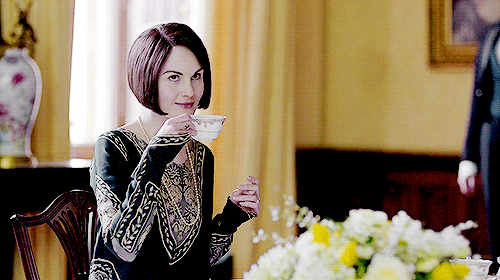
Thanks for your question
#ask#question#roger scruton#scruton#aesthetics#music#sound#culture#classical music#music theory#pop music#society#composer#schopenhauer#language#history#western society#civilisation#personal
49 notes
·
View notes
Text
A few years later a socialist wrote, “Socialism is a theory which presupposes natural equality for people, and strives to bring about social equality. . . . Darwinism, on the contrary, is the scientific proof of inequality.” Karl Marx seems to have admired Darwin and saw an echo of his own idea of social evolution in the idea of the evolution of species. But Darwinism as filtered through Thomas Henry Huxley’s Hobbesian interpretation emphasised conflict and competition, and Darwin himself did portray evolution as a struggle between members of a species competing for scarce resources. That was warped into a confirmation that free-market capitalism and personal selfishness were natural, inevitable, and even good by those who liked them.
Those who didn’t seemed to see no way to reject the superimposed social values without rejecting the scientific theory. A beautiful third way is present in the anarchist philosopher Peter Kropotkin’s conclusions from his time in Siberia, where survival was not an individualistic competition for resources, which were abundant, but a cooperative enterprise of coping with harsh conditions. He called that intra-species cooperation mutual aid, charted its roles in animal and human life, and emphasised that evolution and cooperation were often intertwined, not opposed, but his 1902 book, Mutual Aid, did not sway the arguments of the time. Contemporary evolutionary science has come closer to Kropotkin’s version. The natural world is looking more and more collaborative and interdependent and less and less competitively individualistic.
Rebecca Solnit, Orwell’s Roses
6 notes
·
View notes
Text
But his favourite reading was Huxley, Herbert Spencer, and Henry George; while Emerson and Thomas Hardy he read for relaxation.
— Virginia Woolf, The Voyage Out
3 notes
·
View notes